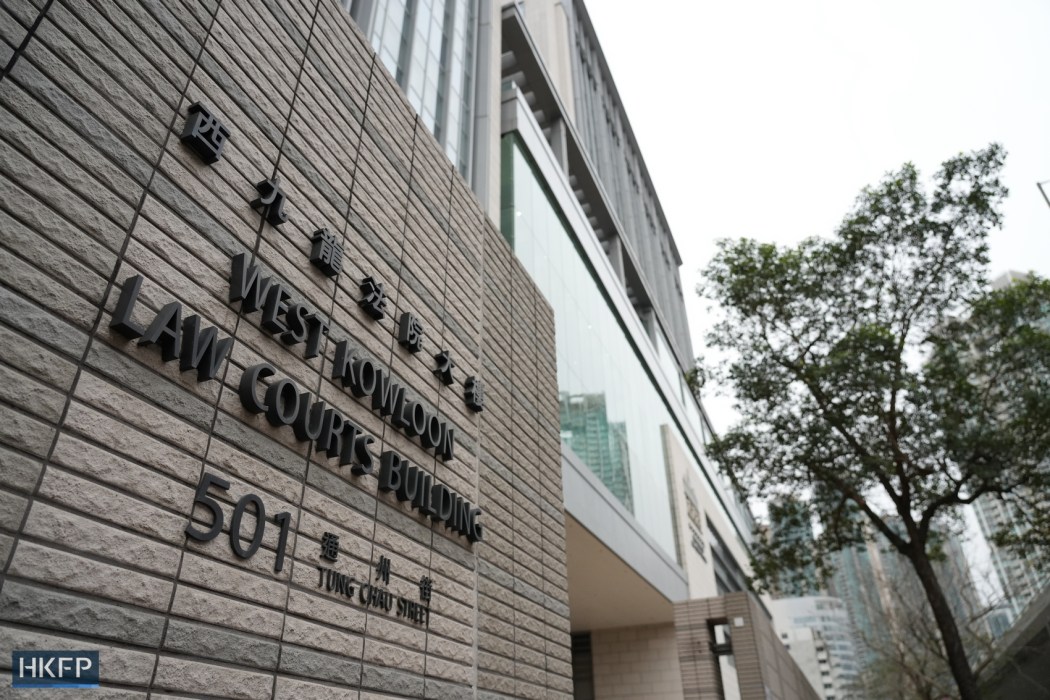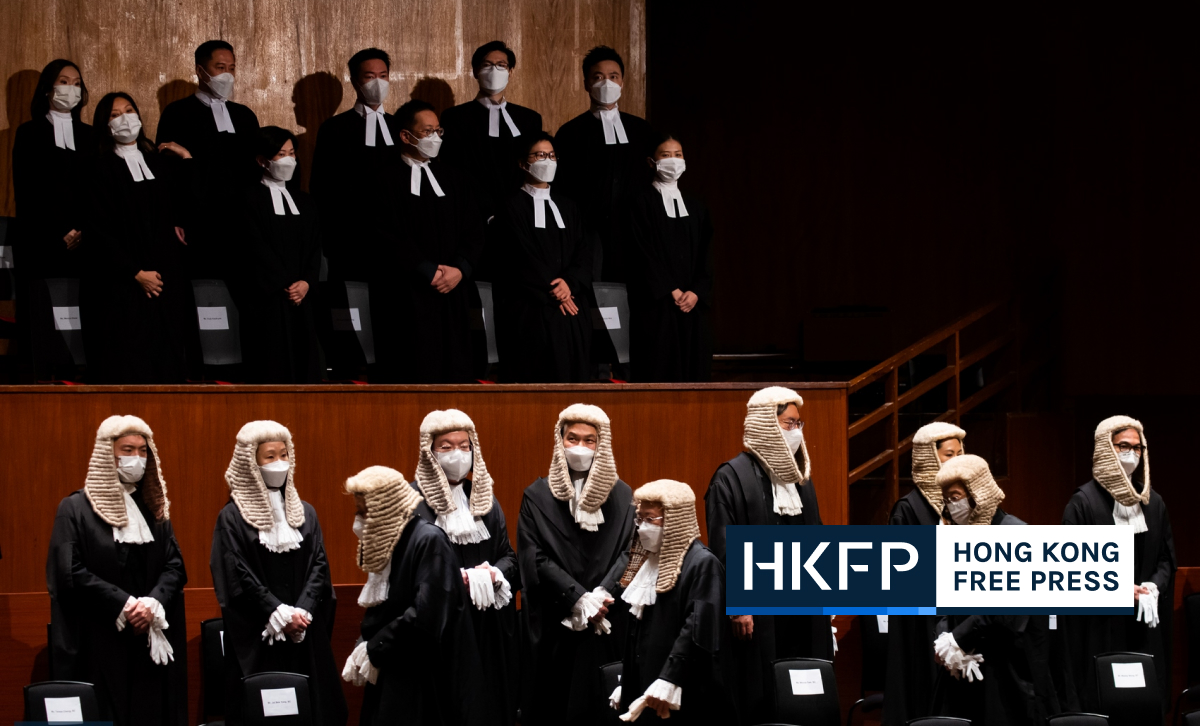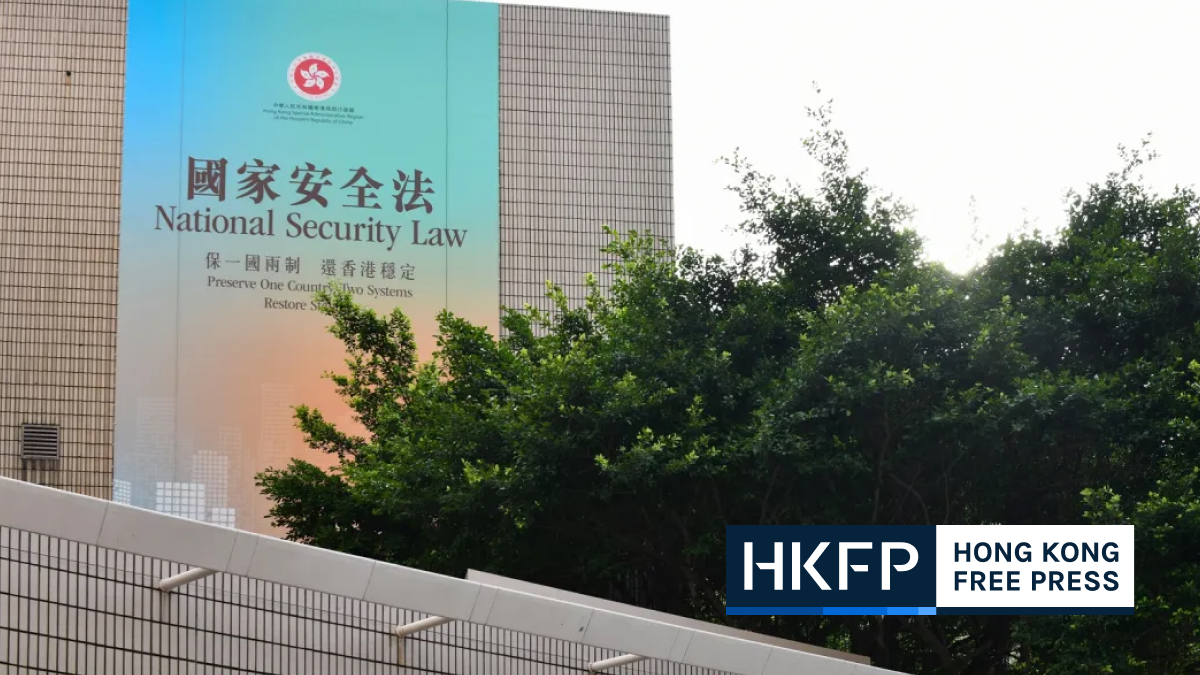A Hong Kong lawyer has challenged his conviction and seven-day jail sentence for obstructing police outside a court in March 2021, when 47 pro-democracy figures faced a marathon bail hearing under the national security law.

Solicitor Leo Yau appeared before Judge Johnny Chan on Thursday in a bid to convince the court to quash his conviction and sentence for obstructing police officers outside the West Kowloon Magistrates’ Courts on March 1, 2021.
On that day, hundreds of people lined up outside the courthouse in Sham Shui Po to show support for former lawmakers, ex-district councillors and other activists charged with conspiracy to commit subversion under the Beijing-imposed security law.
The landmark case saw the democrats and their legal representatives staying in court until after midnight as the defendants took turns to apply for bail pending trial. The bail hearing eventually lasted for four days, with a majority of defendants having been detained since then.
Yau, who represented defendants including former district council members Ben Chung and Andrew Chiu, was said to have deliberately obstructed the police at around 9 pm on March 1, 2021 by refusing to produce identification in an area cordoned off by the police. He was found guilty and jailed for seven days in 2022.
‘The magistrate did not err’
On Thursday Yau’s representative, barrister David Ma, argued that there was no evidence before the trial magistrate to explain why the force had to set up a cordoned area on that day. Although the 47 democrats case was sensitive and attracted media and public attention, only a handful of people remained outside the court when Yau was stopped by the police, he said. The magistrate had not considered whether it was still suitable to maintain the cordoned area at 9 pm, when no one was gathering, the lawyer argued.

“No matter how many people were inside the court, it did not amount to a public procession,” Ma told Judge Chan when he argued that the police power to set up a cordoned area did not apply when there were very few people outside the courthouse.
Senior Public Prosecutor Winnie Mok said Ma, who also represented Yau at the trial, had repeatedly told the magistrate that the legality of police enforcement on the day was not a matter the defence was concerned about. It was why the magistrate had not invited both the prosecution and the defence to make submissions on this point, she said.
“The magistrate did not err,” she said.
Ma went on to argue that his client had genuinely believed that the police had no power to bar him from entering the courthouse. Even if he was wrong in this belief, the trial magistrate should still have considered this as a factor in his defence.
Yau also repeatedly told the police that he was a lawyer, and the court should have taken into account his out-of-court statements, including his calls to the 999 emergency line asking for assistance after he was barred from entering the court.
The obstruction created by Yau was also “not very serious,” Ma argued, adding the interaction he had with the force lasted for around two minutes and three seconds. He called on Judge Chan to review the conviction and sentence.

Mok said the magistrate had already acknowledged Yau’s occupation in the judgement and Ma’s team had not cited legal precedents to back his point that the court should have attached more weight to this argument. Yau also did not give evidence during the trial, she said, which meant the court could only review his actions based on video footage, which showed he argued with the police.
Police made a simple request for Yau’s identification proof and he did not comply, Mok said.
“The magistrate could see the act of the defendant. It was a judgement based on evidence,” she said.
She questioned what grounds the police had to believe Yau was in fact a lawyer when he refused to produce proof, adding the lawyer had mistakenly told the emergency line operator that he was working on a rioting case rather than the democrats’ national security case.
“Not everyone wearing a suit and holding a pile of paper could claim they are lawyers,” the Department of Justice representative said.
Chan adjourned his decision to January 12 next year.
Support HKFP | Policies & Ethics | Error/typo? | Contact Us | Newsletter | Transparency & Annual Report | Apps

















